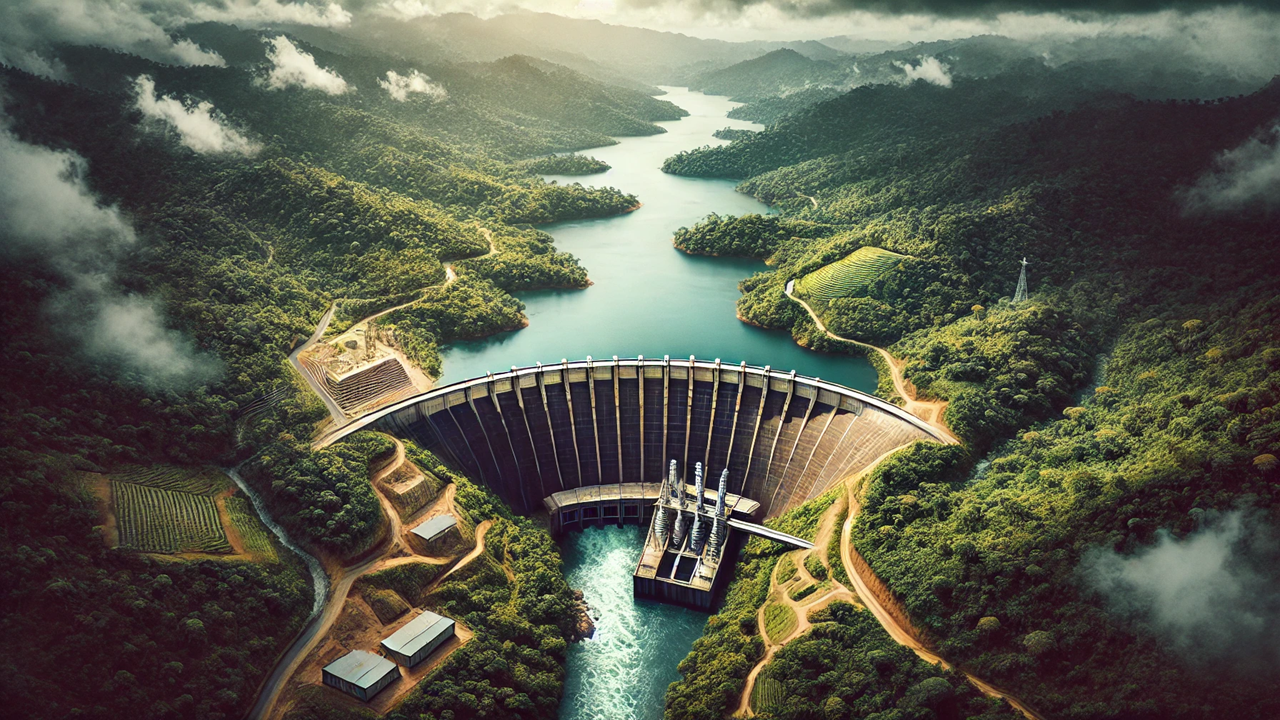Liberia’s Energy Quest: Navigating Growth and Power Challenges for a Sustainable Future
The World Bank’s Liberia Economic Update, Powering Growth with Reliable, Affordable, and Sustainable Energy Access report provides a comprehensive overview of Liberia’s economic performance and energy challenges. While economic growth stood at 4.7% in 2023, fiscal vulnerabilities and a severe energy deficit threaten the country’s progress. With nearly two-thirds of the population lacking electricity access, the Liberia Electricity Corporation’s inefficiencies and high costs stifle growth. The report emphasizes the need for diversified energy sources, private sector participation, and robust fiscal management to achieve sustainable growth.

Liberia’s economic progress is under strain as the country grapples with a fragile recovery, macroeconomic vulnerabilities, and severe energy deficits. According to the Liberia Economic Update, Powering Growth with Reliable, Affordable, and Sustainable Energy Access—the latest World Bank report—despite a growth rate of 4.7 percent in 2023, Liberia’s path to sustainable development is littered with obstacles that need immediate attention. The report offers a deep dive into the state of Liberia’s economy, highlighting both achievements and setbacks, particularly in the energy sector.
Growth Amid Fiscal Strain
The economic performance in Liberia has been moderately positive, supported by growth in the industrial sector, particularly gold mining and construction. Yet, fiscal deficits have widened, climbing to 6.1 percent of GDP in 2023 due to overspending and lower-than-expected domestic revenue. While the country’s public debt rose to 57.5 percent of GDP, inflation surged to 10.1 percent, primarily driven by food price hikes and a depreciating currency. The current account deficit also widened to a staggering 24.4 percent of GDP, signaling significant vulnerabilities in Liberia’s economic stability.
With an economic outlook projecting a modest rebound to 5.3 percent growth in 2024, the World Bank report stresses the need for robust fiscal management, enhanced revenue collection, and targeted public investment to consolidate these gains. However, the looming macroeconomic instability continues to be a cause for concern.
Powering Liberia’s Growth: The Energy Bottleneck
A reliable electricity supply remains critical for Liberia’s path to sustainable economic development, but the country’s energy sector is lagging far behind. With nearly two-thirds of the population still lacking access to electricity, Liberia’s power infrastructure is unable to meet growing demand. The report points out that unreliable power supply, high costs, and limited infrastructure are stifling growth and productivity.
The Liberia Electricity Corporation (LEC), the state-owned power utility, is grappling with significant operational inefficiencies, a high rate of power theft, and mounting financial liabilities. These challenges not only limit its ability to maintain the existing grid but also hinder efforts to expand access. Moreover, the country’s heavy reliance on hydropower exposes it to seasonal disruptions, particularly during the dry months. Despite multiple tariff adjustments aimed at reducing consumer costs, electricity prices in Liberia remain among the highest in West Africa.
The report emphasizes the urgent need for Liberia to diversify its energy sources by incorporating low-cost renewable energy options such as solar and hybrid models. Strengthening LEC’s operational efficiency and reducing technical and commercial losses are vital steps toward ensuring a more reliable power supply.
Finding a Sustainable Path Forward
The World Bank’s report lays out a strategic framework for tackling these energy challenges and fostering sustainable growth. It calls for a robust national electrification strategy that prioritizes expanding both grid and off-grid solutions. The government’s recent enactment of a value-added tax (VAT) law is seen as a positive move toward boosting domestic revenue. However, the key to unlocking Liberia’s potential lies in comprehensive energy sector reforms, improved governance, and better fiscal management.
The strategy must focus on accelerating investments in renewable energy projects and upgrading the national grid infrastructure. The Liberia Electricity Sector Strengthening and Access Project (LESSAP), supported by the World Bank, is expected to play a crucial role in this transformation. Implementing new hydropower plants, scaling up solar photovoltaic installations, and developing transmission and distribution networks will be crucial for achieving universal electricity access by 2030.
Balancing Fiscal Discipline with Growth
Addressing Liberia’s energy constraints will not only improve economic productivity but also enhance the quality of life for its citizens. The World Bank report urges the government to adopt a balanced approach that combines fiscal discipline with strategic public spending in key sectors such as energy, infrastructure, and education. Additionally, fostering private sector participation will be essential for building a competitive energy market capable of meeting the needs of a growing economy.
The road ahead for Liberia is fraught with challenges, but with a focused strategy and collaborative efforts between the government, private sector, and development partners, the country can lay the foundation for a resilient and prosperous future. Sustainable energy access is not just a goal for Liberia—it is a critical enabler for its broader development objectives.
- FIRST PUBLISHED IN:
- Devdiscourse
ALSO READ
Zambia Must Boost Revenue and Improve Fiscal Governance to Spur Economic Growth: World Bank Report
World Bank Report Highlights Somalia's Economic Gains, but Poverty Remains Stubborn Challenge
Mongolia Faces Challenges in Sustaining Gender Equality Despite Reforms: World Bank Report
World Bank Report: Productivity Growth and Social Inclusion Key to Poland’s Future Competitiveness
North Macedonia Faces Potential Economic Losses of 4% GDP by 2050 Due to Climate Change, Warns World Bank Report










